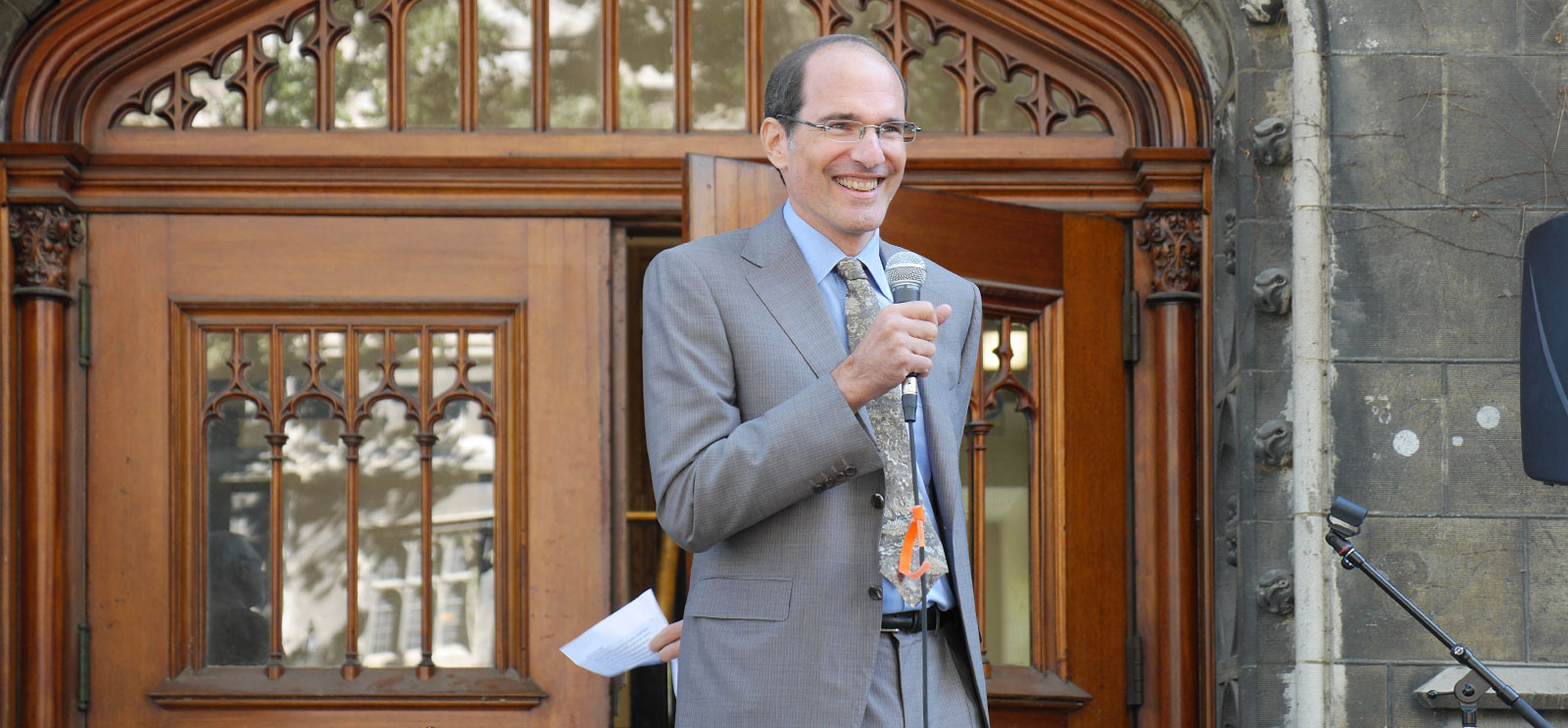
Report from the dean
One from many.
When I’m asked about the greatest challenge and the greatest opportunity for the Division of the Social Sciences, I give the same answer to both questions: disciplinary diversity. Some of our faculty feel close to the biological sciences; work with zebra finches, squirrels, and yes, even humans; and require equipment ranging from MRI machines to cage cleaners. Others focus on applied mathematical or statistical methods, while still others decipher marginalia in Renaissance manuscripts or inscriptions on ancient coins.
As I read the cases for promotion, tenure, or new appointments, I turn from one scholar’s research on new computational and statistical techniques for shortening the length of public opinion surveys, to another’s experiments with poetry and film as ethnographic tools in the Amazon. Even within departments, diversity can be enormous. Political Science encompasses everything from Greek philosophy to game theory. Sociology embraces qualitative, quantitative, computational, and many other methodologies. Social Thought includes poets, philosophers, literary scholars, historians. And so on, department by department.
What’s the challenge? Partly it’s practical: each of these communities requires its own specific nourishment. The space, equipment, and staff needs of neuro- psychology are not the same as those of paleoarchaeology; a microeconomist’s requirements differ from those of a medieval historian, a sociocultural anthropologist’s from those of a demographer. Within our one division, we have an environment almost as complex and diverse as that of an entire university.
The challenge is also cultural. As we govern ourselves in our internally diverse departments and across the Division, we need to cultivate an appreciation for the work of colleagues whose working languages and methods we may not even understand. “To learn humility you must leave home,” says an old proverb. In the Division of the Social Sciences, we can learn humility simply by bumping into our departmental colleague down the hall.
The opportunities, of course, are obvious. That epistemic humility, that constant encounter with other methods, other ways of questioning, can push us to new insights, a willingness to work together in new ways. It is no accident that so many “Chicago schools” were born in the Social Sciences. Diversity, when well nourished, is the mother of wonder. I trust you will discover some of that wonder in the pages that follow. Through them you can wander our hallways, no matter where in the world you find yourself, and experience some of the inspiring diversity of the Social Sciences at the University of Chicago.
